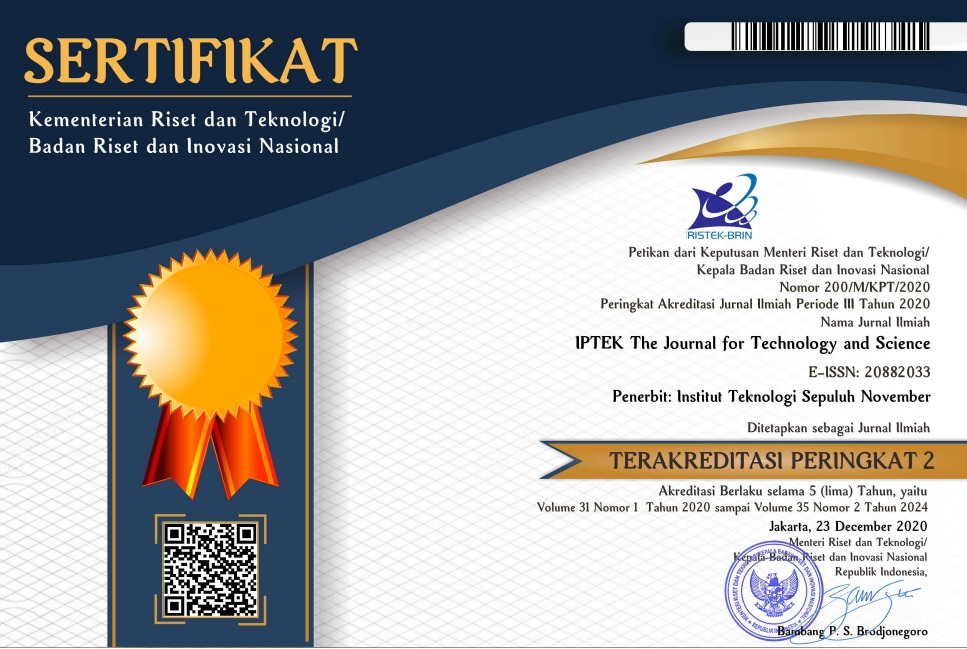Impact of Stakeholder Psychological Empowerment on Project Success
Abstract
Keywords
Full Text:
PDFReferences
S. Rowlinson and Y.K.F. Cheung, “Stakeholder management through empowerment: Modelling project success”, Journal of Construction Management and Economics, Vol. 26, pp. 611-623,
S.C. Certo, “Modern management”, Prentice Hall, 1997, Vol. 7, New Jersey.
Anonymous, “Consrtuction extension to the PMBOK®guide third edition”, Project Management Institute, Pennsylvania, Vol. 2, pp. 19073-3299, 2008.
B. Atkin and M. Skitmore, “Stakeholder management in construction”, Journal of Construction Management and Economics, Vol. 26, pp. 549-552, 2008.
V.N. Marthur, A.D.F.Price, and S. Austin, “Conceptualizing stakeholder engagement in the context of sustainability and its assessment”, Journal of Construction Management and Economics, Vol. 26, pp.601-609, 2008.
S. Olander and A. Landin, “A comparative study of factors affecting the internal stakeholder management process”, Journal of Construction Management and Economics, Vol. 28, pp.553-561, 2008.
J.W. Newstrom and K. Davis, “Organizational behavior: Human behavior at work”, Boston: McGraw Hill, 1997, Vol. 10.
M.M. Tuuli and S. Rowlinson, “Performance consequences of psychological empowerment”, Journal of Construction Engineering and Management ©ASCE, Vol. 135, No. 12, pp.1334-1347, 2009.
D.K. Ahadzie, D.G. Proverbs, and P.T. Olomolaiye, “Developing competency-based measures for construction project managers: Should contextual behaviours be distinguished from task behavoiurs?”, International Journal of Project Management, Vol. 26, pp. 631-645, 2008.
H. Kerzner, “Project management: A systems approach to planning, scheduling, and controlling”, New York: Van Nostrand Reinhold,1995, Vol. 5.
A. Shtub, J.F. Bard, and S. Globerson, “Project management: engineering, technology, and implementation”, Englewood Cliffs, NJ 07632: Prentice Hall International Inc., 1994.
S.R. Toor and S.O. Ogunlana, “Beyond the ‘iron tiangle’: stakeholder perception of Key Performance Indicators (KPIs) for large scale public sector development projects”, International Journal of Project Management, Vol. 28, pp. 228-236, 2010.
R. Takim and A. Akintoye, “Performance indicators for successful construction project performance”, In: 18th Annual ARCOM Conference, Vol. 2, D. Greenwood, Ed., 2002, pp. 545-555.
M.C. Achterkamp, and J.F.J. Vos, “Investigating the use of the stakeholder notion in project management literature, a metaanalysis”, International Journal of Project Management, Vol. 26, pp.749-757, 2008.
A.P.C. Chan, “Framework for measuring success of construction projects”, School of Construction Management and Property Queensland University of Technology Brisbane, Australia, 2001.
F.Y.Y. Ling, S.P. Low, S.Q. Wang, and H.H. Lim, “Key project management practices affecting singaporean firms’ project performance in China”, International Journal of Project Management, Vol. 27, pp. 59-71, 2009.
A. Hamilton, “Management by projects. achieving success in a changing world, London : Thomas Telford, 1997.
S.H. Park, “Whole life performance assessment: Critical success factors”, Journal of Construction Engineering and Management ©ASCE , Vol. 11, No. 135, pp.1146-1161, 2009.
R.B. Woodruff, and S.F. Gardial, “Know your customer:New approaches to understanding customer value and satisfaction”, Blackwell Publisher, Inc, Cambridge, Massachusetts, 02142, USA, 1996.
The KPI Working, “KPI Report for the minister for construction”, Department of the Environment, Transport and the Regions, 2000.
R. Gerson, “Measuring Customer Satisfaction”, Crisp Publications, Inc.Hamilton Count, Menlo Park, CA 94025-9600, USA, 1993.
Z. Izik, D. Arditi, I. Dikmen, and M.T. Birgonul, “Impact of Resources and Strategies on Construction Company Performance: Journal of Management in Engineering©ASCE, 26,1, pp.9-18, 2010.
J.F. Hair, W.C. Black, B.J. Babin, R.E. Anderson, and R.L. Tatham, “Multivariate Data Analysis”, 6th ed. Pearson Prentice Hall, New Jersey 07458, 2006
DOI: http://dx.doi.org/10.12962%2Fj20882033.v22i2.63
Refbacks
- There are currently no refbacks.
IPTEK Journal of Science and Technology by Lembaga Penelitian dan Pengabdian kepada Masyarakat, ITS is licensed under a Creative Commons Attribution-ShareAlike 4.0 International License.
Based on a work at https://iptek.its.ac.id/index.php/jts.


